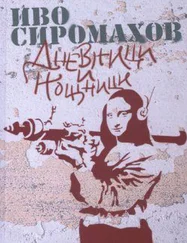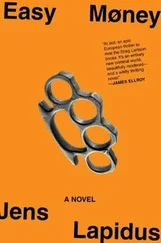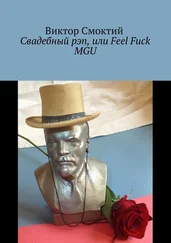A thousand feet or so in darkness. The light from the next station glowed like a white dot farther off. There were blue signal lights and thick cables on the walls. He ran. The old man’s shoes fit okay. He’d only need them until he got to his own gear. So far, no trains, and that wouldn’t stop him anyway—the margin between the track and the wall was several feet wide. What could stop him: the rats that ran in the gravel down there.
Rats.
A few seconds of silence. The darkness closed in around him. Sounds from the animals’ jaws.
Niklas stopped. He had to get out.
The rats were moving down there on the tracks.
He repeated to himself: I have to get out.
Images came flashing back. The basement storage unit when he was a child. All the rats down in the sandbox.
The thought was as clear as the light farther off down the tunnel: If I don’t get out now and complete the mission, my right to live ceases to exist. I will die. I WILL DIE.
He refused.
Refused to remain a passive observer of his own fate. So far, he’d let the circumstances control him. Yes, he made decisions—but always based on the situation at hand, on what others did, how he felt, what Mom thought. External facts, circumstantial occurrences that didn’t originate in the depth of his soul. He didn’t transcend himself. He didn’t steer his own path. Today, he would change course. He was a living force to be reckoned with. A counterweight to everyone else.
He saw other lights farther up.
The tracks vibrated. A train approached through the tunnel.
He pressed himself against the wall. Tried to see if the rats were still there.
A minor blast wave in the tunnel. As if the air was being pressed in front of the train.
The train rushed by. He stood still. Close, close.
Then he ran. Toward the light.
He didn’t hear the animals. He just moved.
Scrambled up onto the platform.
It was eleven o’clock. A mother with a stroller eyed him.
Niklas ran up the escalator.
He made it.
Back in the present. The car, the snow. The Arab he was sharing the car with was named Babak.
Niklas told him about the mansion. Gave directions. Explained the plan of attack over and over again. Babak just nodded. Held the steering wheel tight, as if he was afraid of losing it.
They took Nynäsvägen out toward the archipelago. Hardly any cars. Gray snow drifts along the roadside. Deep tracks in the snow.
Niklas thought about Mahmud and his men. They had energy. They were cocky. But that wasn’t enough. Guys like that: they didn’t know what structure, order, and teamwork were. They were individualists who ricocheted their way through life. Didn’t understand the importance of organization. Hopefully they knew how to handle weapons—they’d practiced, according to Mahmud. Maybe they could handle the deep snow—panting their way through one and a half feet. They might possibly pull off the attack, the storming, the invasion. But would they be able to handle the situation that followed? Niklas hadn’t had enough time. He felt unsure of himself.
He called Mahmud and ordered him to tell everyone to kill their phones.
Babak turned up toward Smådalarö. The darkness outside was compact against the windows. It’d stopped snowing.
He had to stop worrying. Get into the mood. Think about battle rattle.
The cars stopped seven minutes later. They were actually supposed to have stolen or rented cars for tonight, but there’d been no time to do that now when everything’d happened so quickly. They parked outside a large white house. Niklas knew what it was: the clubhouse that belonged to the golf course.
Niklas stepped out. Opened the trunk. Hoisted out one of the black plastic bags. Good that Mahmud’d been able to pick them up in Mom’s basement. The cops were most definitely keeping the house under surveillance, waiting to pick him up again. The media’d heated up the debate around the whole escape.
He walked over to Mahmud’s car with the bag. The sky was dark and it’d stopped snowing. The Arab opened the door. “Here, change in the car,” Niklas said. “It’s better than standing out here. If someone comes by, we don’t want to call attention to ourselves.” Mahmud accepted the bag. Niklas walked back to Babak’s car. Hoisted out the other bag. Brought it into the car.
They began dressing.
Long underwear that Niklas’d bought at the Stadium sports store. There’d be a lot of time spent out in the cold. Over that: the bulletproof vest—with the protective panels tightly packed, molded to the body. It was made to be worn directly against the body: the harness was attached to the protective panels so that the weight was distributed evenly. Maybe this stuff wasn’t the best gear on the market, but it would do. The vests would still feel lighter than they actually were. Would protect heart, lungs, liver, kidneys, spleen, and spine.
He put on the black wind pants. It was tight, getting dressed in the car. He laced up his boots. High, fourteen holes, leather, over four-hundred-gram Thinsulate lining. Waterproof, ventilated membranes for winter cold, guard duty, and armed attack. He pulled on his gloves: lined, black leather. And then the thin puffy over the vest. The heat in the car almost felt damp.
Finally: the ski mask—rolled up, ready to be pulled down over his face.
Babak in the front seat: trying to wriggle into his pants.
“I’m sorry I didn’t get any shoes for you,” Niklas said. “I didn’t have time.”
Babak chuckled.
“My regular winter shoes’ll have to work, I guess.”
Niklas looked down. Babak was wearing a pair of white sneakers. Those were going to get cold and wet. He hoped the guy would be able to hack it.
They climbed out. The road was dark. The air felt clean. Farther up, beyond the golf course, he saw the trees. Niklas brought a backpack out from the trunk of the car. Opened it. Thanked himself for his careful preparations. Pulled out the Beretta. Tucked it into one of the front pockets of his jacket, put the ammunition in the other.
He walked over to Mahmud’s car. The Arab rolled down the window. They looked like they were all dressed in there.
“Okay, boys, it’s almost game time,” Niklas said. “From now on, we’re operating according to military rules. Is that clear?”
Mahmud nodded.
Niklas continued, “I’m going to be completely honest with you. We haven’t had the planning time we needed. But this has to happen tonight. So we’re going to have to improvise a little. There are a few things you have to think about.”
The wind was picking up. Niklas had to raise his voice to be heard. “We’re going to speak English with each other. Is that clear?”
The guys in the car and Babak nodded.
“And we will never use each other’s names. Only use numbers. I am number one, Mahmud is number two, Babak is three, Robert is four, and Javier is five. Can you repeat that? Who are you, Mahmud?”
They repeated their assigned numbers a few times, until Niklas was satisfied.
“Never touch anything without wearing gloves. And finally—don’t, under any circumstances, remove your ski masks. Not even if you’ve taken a hit to the face. Never. Is that clear?”
The boys nodded.
“Now I want you, Javier, to repeat what I just said,” Niklas said.
Javier opened the car door. Recounted briefly about the names, the language, the ski masks.
“You forgot the gloves,” Niklas said. “Never, under any circumstances, take off your gloves. Is that clear?”
The boys nodded again. Niklas asked Robert to repeat. Then Babak.
After each time, they nodded. Niklas hoped that it meant something.
Читать дальше













